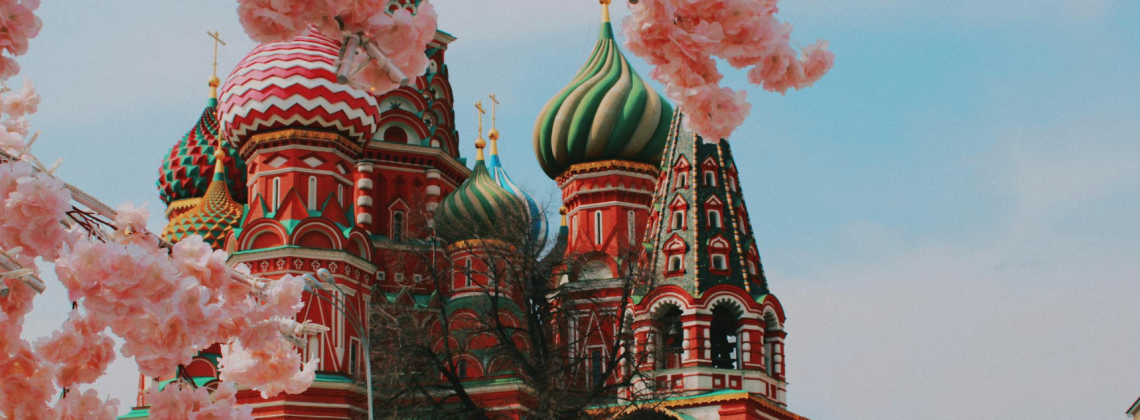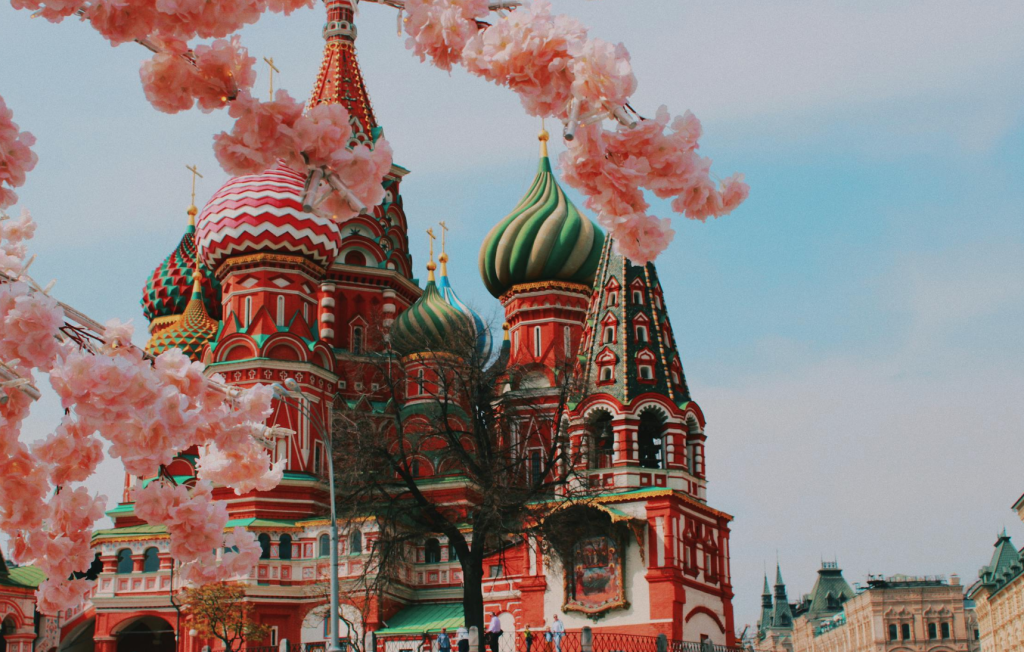

Westerners are Russocentric—as Ukrainians know all too well
Ukraine has many reasons to be frustrated with its Western allies—the months-long delay of crucial aid, the nonsensical restrictions on striking military targets on Russian soil. But foremost among them has to be Western reluctance to accept that Ukraine knows its enemy and what’s at stake in this war better than the West does.
Western condescension toward Ukraine manifests itself in various ways. Over two years into the full-scale invasion, it’s still far too common for well-respected institutions to host panels and discussions on the war without any Ukrainian panelists. (This one last month at Seton Hall featured a Russian-born professor but no Ukrainians.) In effect—whether the organizers intend it or not—this practice transmits the message that Ukrainians can’t be trusted with their own history and experiences. This attitude would be—rightly—criticized as outdated and imperialistic if it were applied to just about any other part of the world.
Westerners are used to either viewing Central and Eastern Europe through a Russian lens or ignoring it altogether—while simultaneously accepting Russia’s version of itself uncritically. Central and Eastern Europeans, and other historical victims of Russian imperialism, are still largely not trusted to tell their own stories in their own words.
Maybe it’s only a small-but-loud segment of Russophiles who really, truly believe that Russian literature, art, and music are inherently superior to that of the rest of Central and Eastern Europe. But, intentional or not, this is the message that Western academic and cultural institutions have long helped perpetuate. Most of us, I imagine, can name at least a handful of Russian writers. I suspect that far fewer could have named a Ukrainian writer before 2022, though I hope many of us can name a few now. Too often our ignorance of non-Russian Slavic cultures is taken as proof that Russian culture is just that much greater than its counterparts, rather than what it is: a sad testament to the hundreds and hundreds of Ukrainian and other writers, poets, composers, and artists that Russia has either appropriated or silenced and killed.
Ukrainian art historian Oksana Semenik keeps a running tally of Western museums, including the Smithsonian, who to this day categorize Ukrainian artists as “Russian”—perhaps by the logic that they were born in the Russian Empire, though they don’t apply this same logic to artists born in the British Empire. Why, in this era of decolonizing our institutions, do we continue to be so comfortable with Russian imperialism?
The history department at the mid-sized public university I attended offered two courses specific to Eastern European history. One was “Imperial Russia”; the other was “Soviet Russia.” (Not even “The Soviet Union” but “Soviet Russia”—particularly problematic when modern Russia deliberately downplays the Ukrainian contribution to the Soviet war effort so it can call Ukrainians “Nazis.”) I checked the course catalog in preparation for writing this piece; ten years on, these still seem to be the only two courses offered on Eastern Europe. Slavic studies departments, in which non-Russian studies have long been “invisible and mute” according to Rice Slavicist Ewa Thompson, have had a reckoning over their Russocentrism since February 2022. Several are working to add courses in Ukrainian history and language. Much more work is needed.
Russocentrism pervades the publishing industry too. My copy editor flagged the spelling “Kyiv” in my manuscript in 2020; Macmillan’s in-house stylesheet at that point still required “Kiev,” which is a transliteration of the Russian, not the Ukrainian. I pushed back and got permission to use the “non-standard” spelling. Until at least mid-2022, Microsoft Word’s spell check red-lined the Ukrainian transliterations of “Kharkiv” and “Lviv” but accepted the Russian “Kharkov” and “Lvov.” This isn’t just limited to Ukrainian spellings either: Elizabeth Wein’s young adult novella White Eagles, set in World War II Poland and featuring a Polish main character, uses “Lvov” for what would have then been Polish “Lwów.”
One thing we would learn, if we actually listened to Ukrainians and other victims of Russian aggression, is that no part of Russia’s war is unprecedented or surprising. All of it has painful historical resonance. (I’ve written before for Current on the specific historical precedent of public executions in Russia’s invasion of Ukraine.) Westerners love the idea of the “mysterious Russian soul.” There is very little mysterious about the Russian soul to its victims.
Saturday, May 18, 2024 marked the eightieth anniversary of the Sürgünlik, the genocidal deportation of the Crimean Tatars under Stalin, when roughly 200,000 Tatars were forcibly deported from their homeland under horrific conditions and replaced by ethnic Russian settlers—a move Russia has repeated in present-day Mariupol. Russian real estate sites there today advertise affordable beachfront properties, conveniently emptied of their Ukrainian owners, to Russian vacationers. And yet Russia’s long history of genocide, ethnic cleansing, and settler colonialism remains largely unknown in the West, while Crimea’s “ethnic Russian majority” is still trotted out by Western experts to explain or even to justify Russia’s invasion.
And so, another thing we would learn, if we listened to Ukrainians, is the seriousness of the stakes. Far too many Westerners seem unwilling to call the Russian invasion what it is—genocide—and to respond accordingly. Far too many still think that territorial concessions are all Russia is after. Far too many refuse to acknowledge that “territorial concessions” means millions of Ukrainians under Russian occupation—or they remain willfully ignorant of what Russian occupation entails. Far too many, including the Pope, still seem to think that sitting down at a conference table to engage in dialogue and hash out differences is all it will take to end the war. But occupation isn’t peace. “Dialogue” isn’t the solution to genocide in 2024 any more than it was in 1944.
Ukrainians—and Poles, Latvians, Lithuanians, and Estonians—know this. They’ve seen it all from Russia before. We ought to respect their expertise.
Amanda McCrina writes historical fiction about Poland and Ukraine during World War II and the Cold War, inspired by her own family’s heritage. Her latest is I’ll Tell You No Lies (FSG, 2023). She lives outside Nashville, Tennessee.
Arguably “Russia” is really a former colony of Ukraine, because around 1000 AD the empire of Kievan Rus included the “Russian” heartland around Moscow and Vladimir.